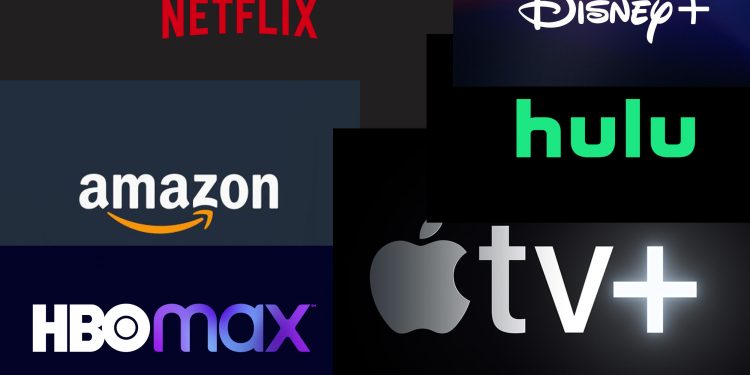Paul Greengrass’ News of the World is the lone big studio film in the Oscar race. It does what movies were invented to do around Oscar time. Tell a story as big and wide as possible, taking you to a place you could not ordinarily go, pulling you into the internal lives of its characters, with set pieces involving crane shots and boom operators and key grips – costumes, cinematography, production design all to depict an alternate reality where was can escape.
That is what movies were designed to do: offer an escape for audiences. The experience itself is transformative and can’t be replaced. Even if the movie is bad – the experience in the movie theater can halfway make up for it. Imagine an entire family heading down to the multiplex on a cold evening near Christmas and sitting down to watch News of the World. It is a film that is mostly not divisive, and inclusive, and one for the whole family. While there is a clear through line of anti-Trump sentiment contained in the idea of news as dangerous propaganda, this is not exclusive to Trump but in 2020 it’s hard not to see it that way.
It is, as I keep repeating, what David Carr would call a MOVIE movie. How much a MOVIE movie loses on a home screen is what we’re all trying to figure out now. Can the studio movie paradigm survive? If so, what movies will get made? Who will pay to see them if they can just watch them at home on their high definition flat screens? It’s a good question and we don’t have the answer to it.
But this year, several newbies have arrived on the scene and this year will prove whether they can get their foot in the door and change Hollywood’s distribution model, and the Oscar race, or not. While Netflix kicked down the door and reached higher and harder first, they were followed quickly by CBS Films, which did not make the cut with Inside Llewyn Davis, and Amazon, which did with Manchester by the Sea.
This year there are several others vying for a spot in the game. Figuring out what will define “Oscar movies” is going to be tricky, with so many side by side comparisons to what can only be called a new golden age of television. Recently none other than Joe Rogan pontificated on his Instagram that TV is better than movies because they can do a series of episodes without having to adhere to the two hour limit. He pointed to Queen’s Gambit on Netflix.
I’m old enough to have lived through a few of these transitions – when big studios had to nurture art house niche arms, like Sony’s Sony Pictures Classics or Universal’s Focus Features, or Fox’s Searchlight, etc. Back then those seemed to have a hard time breaking through into the Oscar race but eventually they came to dominate it, with big studio movies in the money making game, with their art house arms handling Oscar season.
Looking back on that, we should have seen the end coming for the old way, considering the Oscar brand was already becoming strictly art house and not general audience friendly. A famous director once told me that the Oscars are like McDonald’s offering salads alongside the Big Macs as a way to say, “See we still care about healthy foods.” But with Warner Bros movies now hitting streaming at the same time they open in theaters we have to wonder if even the big studio fare is going to survive in the coming years.
What do we have this year?
Studio releases:
News of the World, The Invisible Man – Universal
Nomadland – Searchlight
Promising Young Woman, Never Rarely Sometimes Always, Emma – Focus Features
Minari, First Cow – A24
The Father – Sony Pictures Classics
Ammonite – Neon
Judas and the Black Messiah, Tenet – WB
The Mauritanian – STX Films
Netflix:
Mank
Ma Rainey’s Black Bottom
The Trial of the Chicago 7
Da 5 Bloods
Pieces of a Woman
Hillbilly Elegy
Midnight Sky
The Prom
I’m Thinking of Ending Things
Amazon:
One Night in Miami
Sound of Metal
I’m Your Woman
Herself
Apple:
On the Rocks
Wolfwalker
Greyhound
DisneyPlus:
Soul
Mulan
Hulu:
The United States vs. Billie Holiday
Palms Springs
HBOMax:
Let Them All Talk
I guess the question is not where film goes. We already know where it’s going. It’s going to streaming. I guess the question will be, what the Oscars themselves are going to be going forward. How will the new financial reflect a movie’s popularity, and how will the film awards distinguish themselves from television awards? How will consumers experience movies going forward?
Either things will bounce back after Covid goes all the way away, or they won’t. But we are living through a transitional period that will help decide that question.













